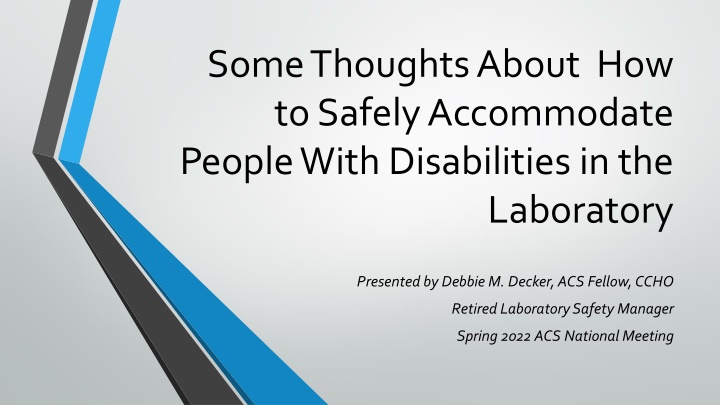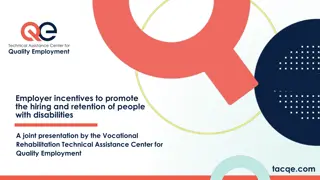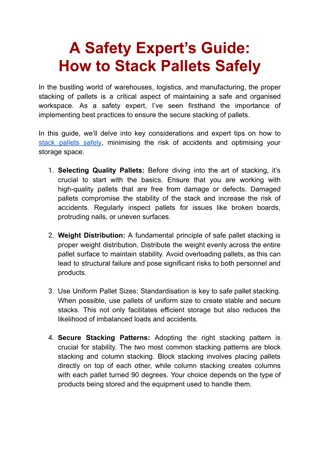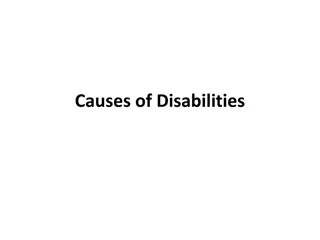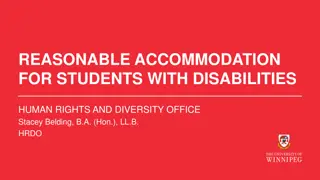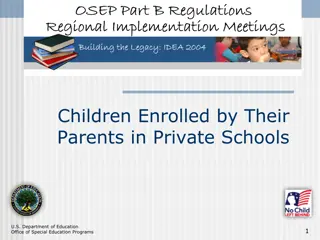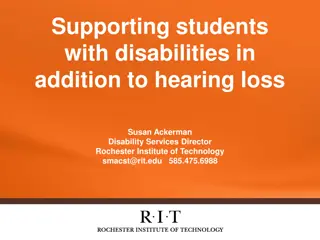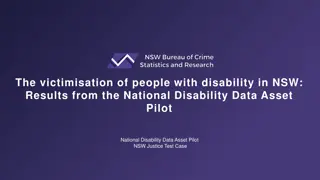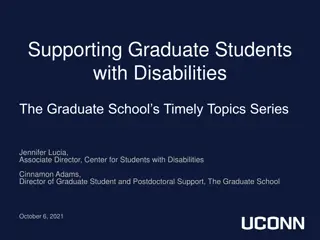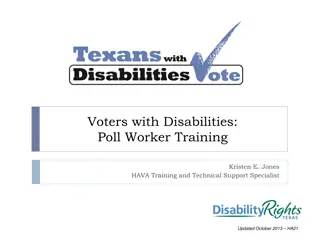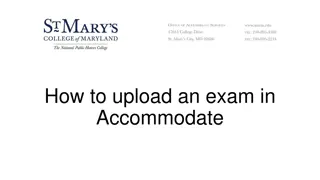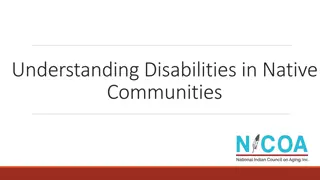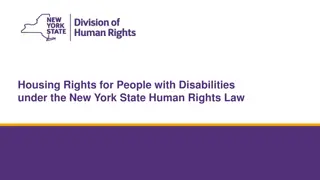Some Thoughts About How to Safely Accommodate People With Disabilities in the Laboratory
Strategies for safely accommodating individuals with disabilities in laboratory settings are essential for fostering inclusivity. This presentation delves into recognizing diverse disabilities, offering case studies, and discussing legal frameworks for service animals, providing valuable insights for creating accessible work environments.
Download Presentation

Please find below an Image/Link to download the presentation.
The content on the website is provided AS IS for your information and personal use only. It may not be sold, licensed, or shared on other websites without obtaining consent from the author.If you encounter any issues during the download, it is possible that the publisher has removed the file from their server.
You are allowed to download the files provided on this website for personal or commercial use, subject to the condition that they are used lawfully. All files are the property of their respective owners.
The content on the website is provided AS IS for your information and personal use only. It may not be sold, licensed, or shared on other websites without obtaining consent from the author.
E N D
Presentation Transcript
Some Thoughts About How to Safely Accommodate People With Disabilities in the Laboratory Presented by Debbie M. Decker, ACS Fellow, CCHO Retired Laboratory Safety Manager Spring 2022 ACS National Meeting
Introduction People with disabilities and inclusion Disabilities may be obvious -use of a wheelchair or service animal Disabilities may be subtle metabolic or seizure disorders or processing challenges Case Studies for your consideration
Case Study #1: Workstation Follies I don t think accessible means what you think it means.
Please Ask! Develop essential job functions to help guide the conversation Ask neutral questions, related to the essential job functions University of Washington - Disabilities, Opportunities, Internetworking, and Technology (DOIT) Center (https://www.washington.edu/doit/)
Case Study #2 Shannyn and Memphis These are the questions you can ask about a service dog: (1) is the dog a service animal required because of a disability, and (2) what work or task has the dog been trained to perform. You may not ask if the dog has training, what s the nature of the disability, or ask for the dog to demonstrate their training.
Legal Framework for Service Animals Revised ADA requirements (ada.gov) Beginning on March 15, 2011, only dogs are recognized as service animals (updated to include miniature horses) Service animals are defined as dogs that are individually trained to do work or perform tasks for people with disabilities. Service animals may accompany people with disabilities in all areas where members of the public are allowed. Service animals must be harnessed, leashed, or tethered, unless these devices interfere with the service animal s work or the individual s disability prevents using these devices. A person with a disability cannot be asked to remove his service animal unless: (1) the dog is out of control and the handler does not take effective action to control it or (2) the dog is not housebroken In addition to the provisions about service dogs, the Department s revised ADA regulations have a separate provision about miniature horses that have been individually trained to do work or perform tasks for people with disabilities
Case Study #3 Student Who is BVI (Blind/Visually Impaired) www.hobywedler.com Put your assumptions aside and listen you will learn many things.
Hints and Tips For A Successful Conversation Create an atmosphere of trust and respect Be as neutral as possible in your language If they present with a service dog, ask them to tell you about their dog Document the agreements you make with the person requesting accommodation
Closing Thoughts People with disabilities have much to contribute Approach conversations with: A listening heart A collaborative mindset A positive attitude
Resources https://www.hobywedler.com/ https://www.eeoc.gov/laws/guidance/ada-your-responsibilities-employer (Federal guidance for Reasonable Accommodations for employers) https://ucdavispolicy.ellucid.com/documents/view/335/active/ (Service and Support Animals, Policy 290-91 UC Davis) http://chemistry.ucdavis.edu/safety/student_with_disability_guideline-final.pdf (UC Davis Chemistry Department, Students with Disability Guideline) https://www.npr.org/2020/01/29/800911230/service-animals-in-the-lab-who- decides (News piece about Sampson the Service dog and his person, Joey Ramp) https://www.washington.edu/doit/ (University of Washington, Disabilities, Opportunities, Internetworking, and Technology Center)
